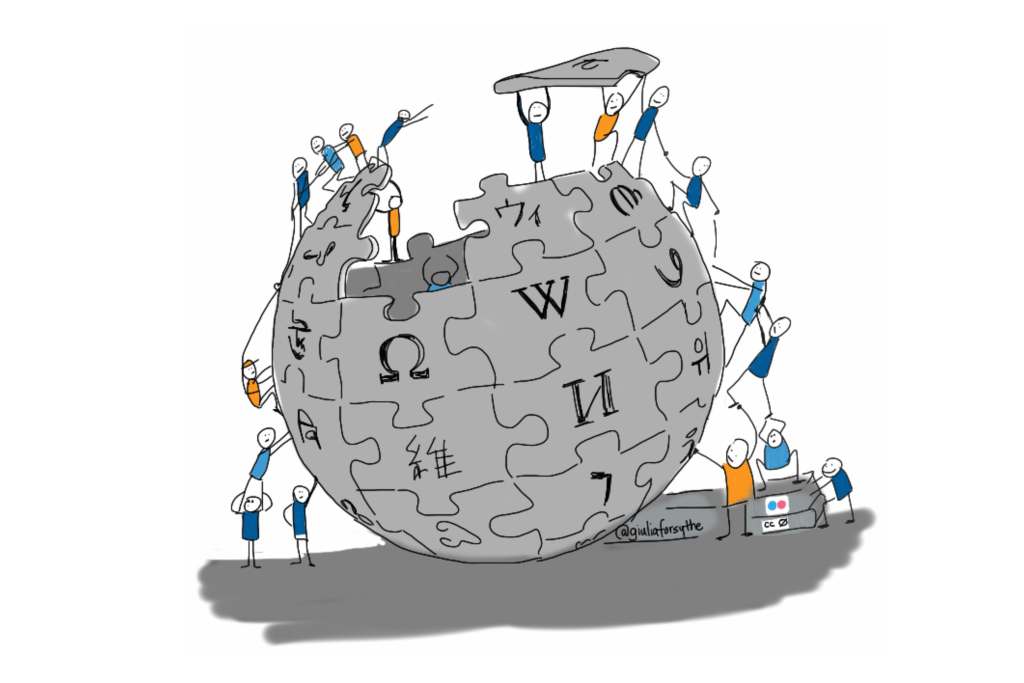
As part of the ongoing Universal Code of Conduct (UCoC) enforcement conversations, the Wikimedia Foundation reached out to a number of communities to hear their thoughts on potential enforcement mechanisms for the global policy. As a part of the team, I had the chance to interact closely with the Polish community on the subject.
Polish is one of the few communities that not only has well developed behavioural policies but also an effective enforcement system. Thus, it was imperative to know its thoughts on an enforcement system for the UCoC. During the discourse, I learned a number of new things about my own community and discovered that Polish community is a perfect example of how robust local enforcement systems can be built and put to action.
Polish Wikipedia was started in September 2001. At first, it was hosted on its own domain – wiki.rozeta.com.pl and the server stood in the shoe box inside the wardrobe of one of its founders – Paweł Jochym.
The project valued its independence from the very beginning. It transferred to the universal domain of pl.wikipedia.org in November of 2002, after one year since it was founded. Since then, the community kept growing. Like any other big project, the Polish Wikipedia also started facing sporadic issues of conflicts among community members and functionaries. This necessitated the need of creating a body and rules that could help with peaceful conflict resolution. Thus, the idea of a Polish Arbitration Committee came to the fore in early 2007.
The Polish ArbCom was formed in the late summer of 2007 as one of the first ArbComs of the Wikimedia movement. The first talks regarding the inception of the Polish Wikipedia’s Arbcom started in May 2007 and were among the most developed discussions in the project’s history. The community has debated many issues, including the ability to appeal the verdicts to Jimmy Wales and Arbcom’s position regarding the Board of Trustees of the Wikimedia Foundation. The community decided that neither will get power to strike down Arbcom’s decisions.
The inaugural elections took place in September of 2007 and elected 9 arbitrators (the number remained steady ever since). One of the first actions undertaken by the Arbitration Committee was to forfeit the right to appoint the Checkusers on Polish Wikipedia. Arbcom argued that selecting Checkusers (as well as all users with advanced permissions) should be the right of the local community, not the global community or the Wikimedia Foundation.
Experienced editors, functionaries and Arbitration Committee members can also rely on help from the Wikimedia Polska (WMPL) – the Polish chapter. WMPL offers a wide range of support when it comes to keeping order in Polish Wikimedia projects. Administrators and Arbcom members are eligible for mediation training. Regular sysop meetings help to bond the functionaries together and ensure uniform interpretation of the rules.
Polish Wikipedia elects their administrators with a rare threshold of 80% support needed to be appointed. This threshold is even more challenging for a position of Beaurocrat, Checkuser and Oversighter with 85% support and at least 25 votes “in favour” needed. This obscure threshold makes it hard for new administrators to be elected (Polish Wikipedia, despite having almost 1 400 000 articles, has fewer than 70 active sysops). Still, once in office, administrators have the privilege of holding a strong mandate from the community, and their decisions (if fair) are rarely questioned. This approach allows the community to rely on administrators’ decisions in everyday governance in the project, without the need for strict written rules, concerning every possible scenario (Occam’s razor).
The Polish Wikipedia values its independence from the rules and matters of the global community. They are willing to negotiate and adapt their own rules, but their self-rule remains as essential now as it has been in 2002 and 2007. During the 2021 Universal Code of Conduct consultations, the community has stated multiple times that they would prefer an enforcement system that supports local governance. A majority of users mentioned that UCoC would be applied best if the Wikimedia Foundation could strike a balance between solid enforcement and autonomy of the projects which wish to maintain it.
Polish Wikipedia is an example of how the big Wikimedia community can flourish under the self-governance system. It also shows that the community can develop systems and rules to keep order in the project while maintaining its autonomy and the ability not to rely on the help from the global community.
UCoC Facilitators Blog Posts
- Self-governance of older Wikimedia projects – the curious case of Polish Wikipedia
- Consulting the UCoC Enforcement Within an Intercultural Wikimedia Ecosystem
- Lessons from the recent influx of teenagers in the Korean Community: How do we deal with them as active contributors?
- Facilitating Wikimedia Communities in West Africa for the UCoC

Can you help us translate this article?
In order for this article to reach as many people as possible we would like your help. Can you translate this article to get the message out?
Start translation